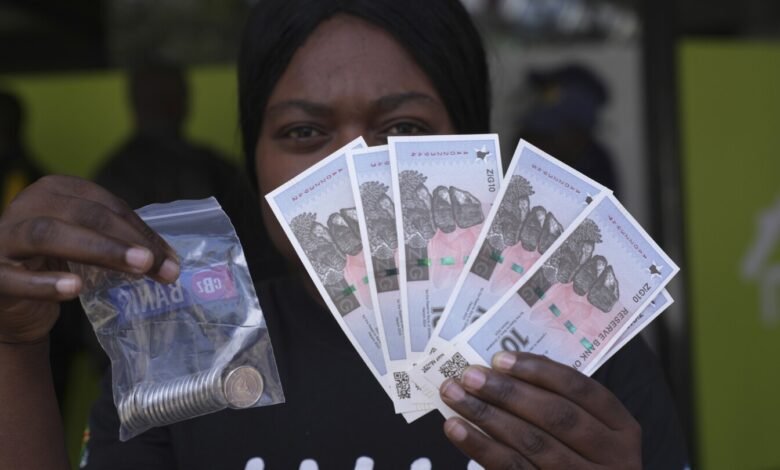Zimbabwe’s ZiG is the world’s newest currency and its latest attempt to resolve a currency crisis

HARARE, Zimbabwe (AP) — Out with the Zimbabwe dollar, in with ZiG.
Zimbabwe began circulating a new currency to replace one that has been mistreated by depreciation and often by total rejection by the people. ZiG was introduced electronically in early April, but now people can use banknotes and coins.
It’s the southern African country’s latest attempt to lock in a long-lived currency crisis highlighting its persistent economic problems. The government had already put forward several ideas to replace the Zimbabwean dollar, including the introduction of gold coins to contain inflation and even experiment with digital currency.
Since being launched electronically on April 5, ZiG – short for Zimbabwe Gold and backed by the country’s gold reserves – appears to be following the same path of distrust, with some government departments refusing to accept it.
The ZiG is the sixth currency that Zimbabwe has used since the spectacular collapse of the Zimbabwe dollar in 2009, amid 5 billion percent hyperinflation, one of the world’s worst currency crashes to date. This triggered a chaotic series of events: first the US dollar was authorized as legal tender, then banned, and then nullified.
A new “bond note” became legal tender, the Zimbabwean dollar was reintroduced before gold coins and digital currency were tested.
However, nothing brought any monetary stability and the US dollar remains the most reliable for ordinary Zimbabweans.
As the new ZiG notes hit the streets, distrust was evident.
Kudzanayi Mande, a vegetable trader in the busy Mbare market in the capital Harare, said she would rather forego a sale than accept ZiG. She was confused, the 56-year-old said.
“There is already an official exchange rate and a depreciated black market rate, so I will wait a bit to see what its real value is,” she said. “The US dollar is still a safer bet.”
The government has allowed some businesses, such as gas stations, to refuse to accept ZiG in favor of US dollars. Some departments, such as the office that issues and renews passports, only accept US dollars.
At the same time, other companies are being forced to use only ZiG and will be punished if they don’t.
“The government prints the money, so it must be the first to accept the currency and everyone else will follow,” said Gift Mugano, professor of economics at the Durban University of Technology in South Africa.
“Otherwise, you are behaving like someone who eats takeout but wants others to eat the food they cook,” Mugano said. “It becomes suspicious.”
Many in Zimbabwe still remember when a 100 billion Zimbabwe dollar note was printed in 2009 at the height of hyperinflation to keep up with the price spiral.
At one point, a loaf of bread cost more than 500 million Zimbabwean dollars. Prices would change from the moment customers entered the supermarket to the moment they lined up to pay at the cash register. Restaurants stopped displaying prices on menus as they rose during dinner. People carried bags full of banknotes. Savings and pensions have become worthless.
Despite the trials, the dollar remained precious – and highly valued on the black market.
Across Zimbabwe, the US dollar is still widely used, from paying rent and school fees to purchasing food. Many take their local currency earnings to the black market to exchange them for dollars, as banks do not distribute US dollars. Some people keep their US dollars at home.
The government of President Emmerson Mnangagwa adopted a hard-line approach – dozens of black market currency traders have been arrested and have been in pre-trial detention for weeks, accused of trying to undermine the new currency. After ZiG was introduced electronically, some companies’ bank accounts were frozen, accused by the government of rejecting the new currency.
Authorities say they have faith in ZiG because it is backed by the country’s gold reserves. Mnangagwa said in a speech on Monday that it was a matter of “our national identity and dignity” to trust ZiG.
While some hopeful Zimbabweans headed to banks on Tuesday to get their hands on the new currency, many remained skeptical after two decades of turbulence.
An online media outlet published a political cartoon showing a police officer struggling to hold on to a collapsing house with the word ZiG on it.
The caption: “The world’s first police-backed coin.”
___
Follow AP Africa news:




